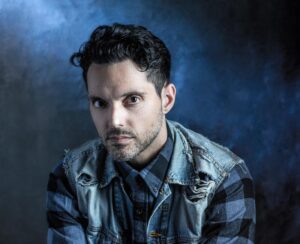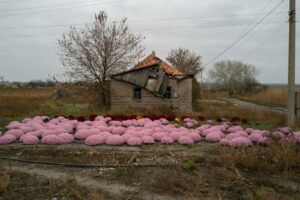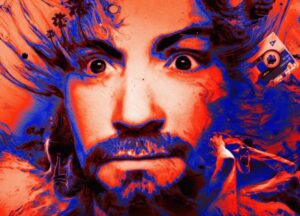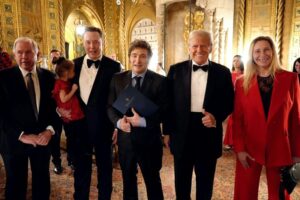Billie Mintz talks about directing his docuseries ‘Making Manson’ on Peacock
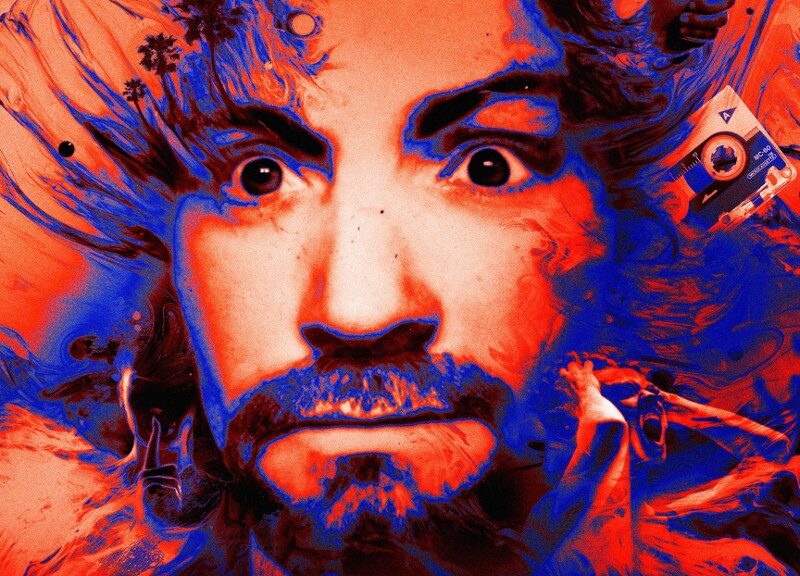
Charles Manson in ‘Making Manson’ docuseries. Photo Courtesy of Peacock.
Billie Mintz (“The Guardians”) chatted about directing his docuseries “Making Manson,” which will premiere on November 19th on Peacock.
The synopsis is: An explosive series offering unfiltered insights into America’s most notorious killer, Charles Manson.
Through 20 years worth of never-before-aired conversations, those closest to the case have their views challenged as Manson talks openly about his part in the infamous crimes, as well as his upbringing, criminal youth and his true feelings about “The Family.”
Manson reveals the cruelty he suffered in reform school and the childhood experiences that made him who he was.
Former “Family” members listen to the exclusive conversations and are taken back to the time when they “would do anything for Charlie.”
Manson recounts the early crimes that led to the murder spree in the summer of ‘69, laying out an explanation of loyalty and brotherhood that pushes against the accepted motive: his desire to incite Helter Skelter.
In the final moments before his death, Manson reflects on his life in prison and shows rare tenderness for the man who spoke to him across the decades.
How was your experience directing “Making Manson”?
Directing “Making Manson” was an exercise in unearthing and deconstructing myths – a journey into the layered and often distorted narratives surrounding Charles Manson.
The producers at Renowned Films challenged me to approach a story that has been told countless times, but from an entirely fresh perspective.
My goal was to go beyond the established story, uncovering the complexities of a person who has been turned into a myth. Rather than just revisiting events, we aimed to capture the nuances in the people associated with Charles Manson and explore the psychological layers that often get buried beneath sensational narratives.
Hearing Manson’s own words, unfiltered and unguarded, added a rare dimension, allowing us—and ultimately, the viewers—to question long-standing assumptions and peel back the constructed persona that has overshadowed the human complexities of this case.
The most fascinating part was exploring the unfiltered tapes, where Manson isn’t performing but speaking candidly with a friend over 20 years. These tapes let us see him outside of the caricature he became. They bring us closer to the human behind the myth, allowing viewers—and myself—to rethink long-held assumptions and seek the truth buried beneath sensationalism.
Can you compare and contrast this experience vs. “The Guardians”?
“The Guardians” and “Making Manson” both dig deep into misunderstood stories, but they required different approaches.
“The Guardians” dealt with systemic issues around guardianship abuse, emphasizing the stories of vulnerable individuals within a broken system. It was a straightforward, investigative process.
With “Making Manson,” I was challenged to dismantle decades of public perception and myth-making. This project isn’t just about Manson himself; it’s about how we create legends and villains.
Each film taught me that truth is rarely straightforward and often lies in the spaces between fact and perception.
What did this docuseries teach you about yourself?
Working on “Making Manson” reminded me of the importance of patience and withholding judgment and a willingness to question everything.
It’s easy to latch onto established narratives because it’s been repeated so many times, especially with a figure as infamous as Charles Manson.
This project pushed me to step back, question, and dig deeper, even when the truth was murky or unsettling. It reinforced that my role isn’t to impose a definitive story but to allow space for viewers to see the layers themselves.
For me, it was a humbling reminder of the role of the storyteller—not to decide the truth but to allow space for a deeper, more complex understanding.
How does it feel to be a part of the digital age?
The digital age has completely transformed the way we share and receive information. In the past, we relied heavily on gatekeepers of information, only learning what happened through the narratives presented to us.
Now, we have this incredible ability to connect directly with one another, sharing our own stories and personal truths. This shift has made it much harder to control a story from just one perspective, as diverse voices and experiences emerge in ways that weren’t possible before.
For instance, when it comes to Manson, the prosecution crafted a story designed to convince a jury to convict him, and the press ran with this version, retelling it for the next fifty years.
This narrative was presented to a 1970s society that, arguably, was more receptive—if not outright gullible—compared to today.
The digital age has broadened our access to information, making us more capable of fact-checking and corroborating details than was ever possible back then.
This shift gives us the opportunity, and the responsibility, to revisit the narratives we’ve been handed with a sharper, more discerning eye.
Today, we have a greater capacity for meaningful discourse, though there’s still room for improvement in how we navigate differing opinions.
Nonetheless, I believe we’re moving closer to a place where genuine dialogue and critical re-examination are achievable.
What is your advice for young and aspiring filmmakers?
Stay curious, and don’t shy away from complexity especially when it comes to stories you think you know.
Some of the most compelling stories lie beneath the surface, in the overlooked details and the gaps between accepted facts. When approaching familiar narratives, there’s always a temptation to lean on preconceived notions or popular ideas.
Instead, dig into the uncomfortable or overlooked truths, and challenge what you think is “common knowledge.”
In filmmaking, the most powerful stories often lie in what hasn’t been said. True storytelling is about seeking understanding, even if that means embracing ambiguity.
What is the best advice that you’ve ever been given?
Someone once told me, “The story is never finished, only abandoned.” It reminds me that every project is a journey toward understanding, not necessarily about reaching an absolute truth.
This is especially relevant with projects like “Making Manson,” where there may never be a singular “truth.” You have to be comfortable with what remains ambiguous and focus on asking the right questions.
What does the word success mean to you?
For me, success is about the courage to look at well-defined narratives with critical thinking and an open mind, always pursuing a deeper truth.
It’s about questioning easy answers and remaining curious, especially when it means peeling back layers of myth and exploring uncomfortable perspectives.
Success isn’t just about achieving goals in the workplace or creating projects that resonate; it’s also deeply tied to the way we live our lives and the people we share them with.
I’m fortunate to wake up each day with a beautiful family, to share meals, conversations, and everyday moments with those who mean the most to me.
True success, to me, is found in these relationships, in the people who are there at the start of each day and with whom I fall asleep under the same roof at night.
It’s about the richness of connection and the quality of the life we build together, not just the milestones we reach professionally.
What would you like to tell our readers about “Making Manson”?
If there’s one takeaway from “Making Manson,” it’s to question the easy narratives. Charles Manson’s story has been told in so many ways, often shaped to fit sensational headlines or Hollywood archetypes.
This project invites viewers to reconsider what they think they know, to peel back the layers of myth, to look beyond the “cult leader” archetype, to consider the human complexities involved and to recognize that truth often lies in a murky, uncomfortable middle ground between the extremes.
We’re not here to sympathize but to understand, challenging the simplified, often distorted stories in favor of a more nuanced, honest view of the truth.
To learn more about Billie Mintz, check out his official website.
Billie Mintz talks about directing his docuseries ‘Making Manson’ on Peacock
#Billie #Mintz #talks #directing #docuseries #Making #Manson #Peacock

